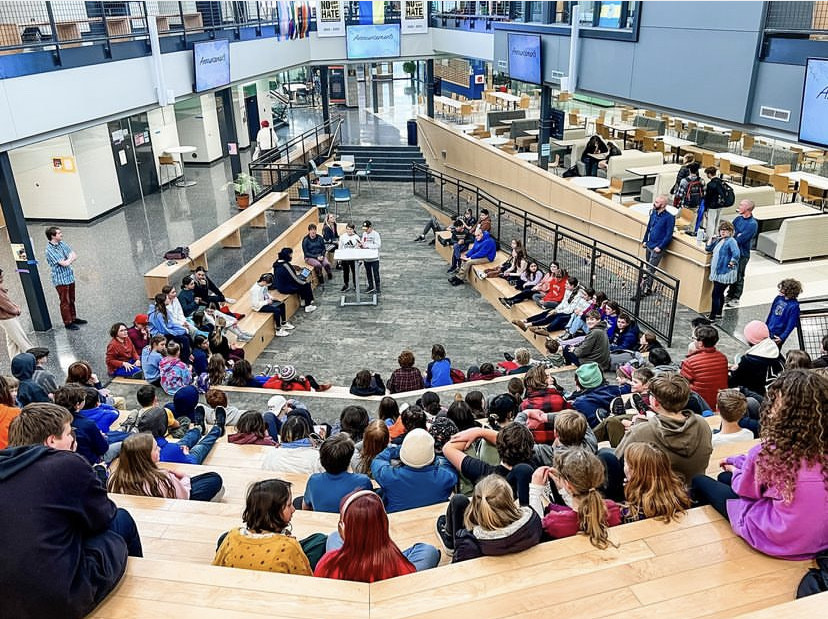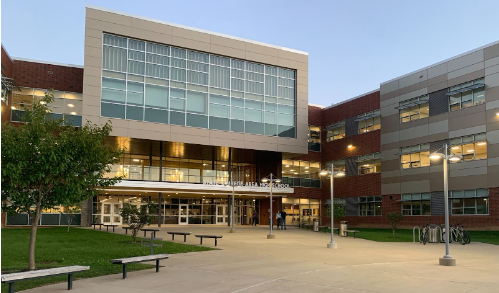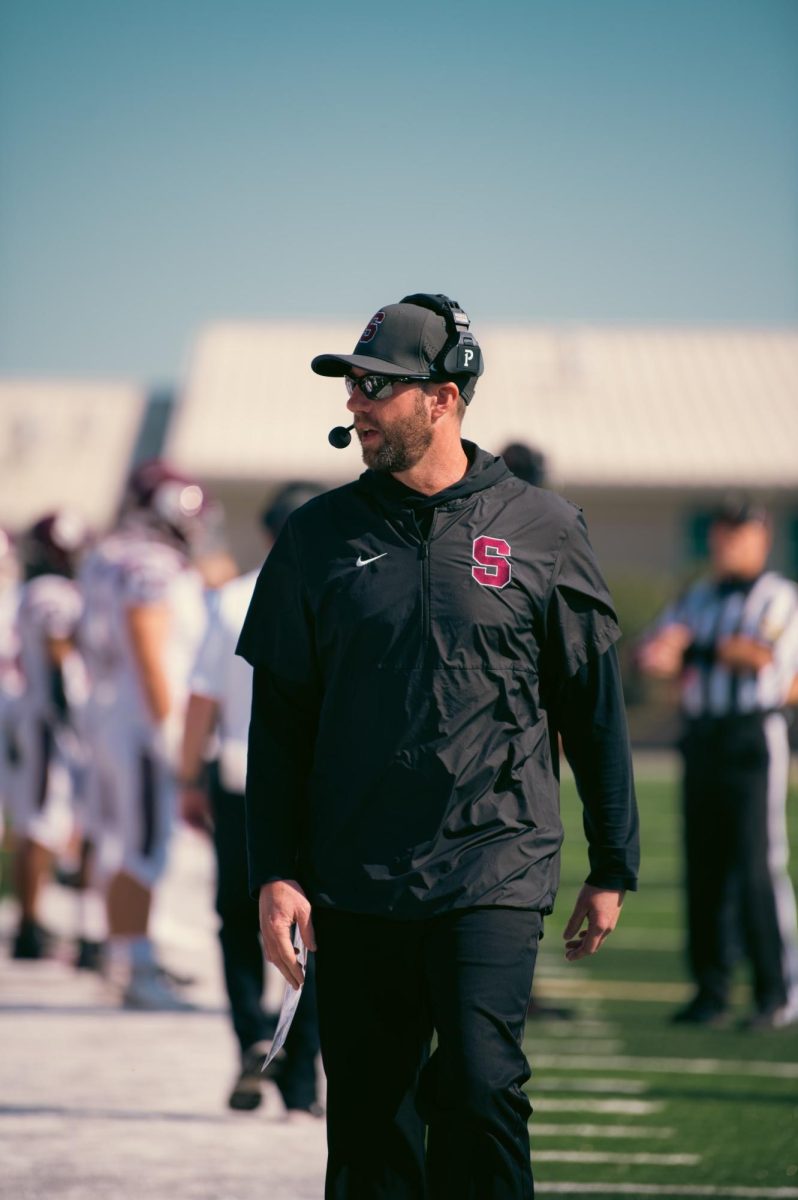The Delta Program, founded in 1974 as the “Alternative Program”, has provided students with a home for their individualized education experiences. The program was founded on a model of community and democratic process creating a unique environment for students and teachers alike.
Currently, the status of Delta is under discussion. In March 2023, the idea of Delta becoming an official school emerged. To address questions and concerns, a committee composed of Delta students, teachers, parents, school board members and administrators was formed.
To become an officially recognized school, Delta will need to gain a PA school building code. Delta’s physical location and governance would not change, but it would be able to differentiate its data from State High and the middle schools and would gain other privileges given to schools.
The Process:
The committee began in September with 14 meetings occurring over the past year. The 17 committee members worked together to research and discuss their own questions along with questions posed by the greater Delta community. The Delta Program is based on a model of democratic participation, so community members hoped the committee process would allow the Delta community to participate in the decision-making process in a manner that aligns with the program’s values.
Assistant Superintendent Jonathan Bucher served as a committee member. Joining the district in 2023, Bucher came into the committee meetings with an unbiased perspective and a willingness to learn more.
“We [the committee] basically focused on if Delta became a school, what are the unknown factors that we would need to consider and what, if [Delta] became a school, what would change and what wouldn’t change,” Bucher said. “We created a document that basically outlined if [Delta] stayed a program, this would stay the same if it became a school.”
On May 6, the committee presented three opinions to the school board, representing the most popular views among committee members. Opinion A: Delta becomes a school for the 2024-25 school year; Opinion B: Delta remains a program; Opinion C: Delta becomes a school for the 2025-26 school year.
SCASD Director of Educational Alternatives Jon Downs served as a committee member. Downs’ role is adjacent to being principal of Delta, so this perspective informed his decisions.
“I think we [committee members] all have similar roles to vet and answer questions that are brought to us from the Delta community and the SCASD community at large. I mean, when this process was started, there were lots of questions,” Downs said. “And so it’s been very informative.”
While the committee process intended to involve community members in the process, it was significantly different from Delta’s typical democratically-minded process. Delta holds weekly “All School Meetings” to discuss school matters with the entire student body along with Advisory Council meetings for students to initiate school ideas and programs.
“The challenge with this process is it doesn’t necessarily align with the Delta decision-making process. The way a school district operates and the decision-making process isn’t the same as Delta’s, and I think that’s caused a lot of confusion amongst people,” Downs said.
As the committee process progressed, both committee members and community members became more open to the possibility of change.
“I would say the more information that we were able to gather and then present facts that coincided with people’s trust in the fact that they were open to the possibility of [Delta] being a school. I would say that my feelings at the first meeting were a lot of opposition, and I think now there has been a shift towards the openness of [Delta] becoming a school,” Bucher said.
Positives and Negatives:
A multitude of variables were considered during the decision-making process. Questions regarding curriculum, graduation, data collection, enrollment and funding were addressed, however, fears still remained over whether the committee’s responses were absolute and if Delta’s unique culture would be affected.
Delta student and Advisory Council President Lorelai Radzanowski remained opposed to Delta becoming a school over the course of the committee process. “The great things he [Superintendent Curtis Johnson] talked about were [that] we’d get a building code, we’d become a legitimate school and it would be easier to separate our data from State High’s,” Radzanowski said. “As a community, we don’t see benefit in those things because we don’t believe in standardized testing. We’re a counterculture to State High. Essentially, we exist to be different, to not become legitimate, because legitimacy implies a sense of almost dangerous permanency where we get stuck in these bad habits.”
Radzanowski is worried about how Delta’s relationship with State High and the middle schools would be affected if Delta became a school. Currently, Delta high school students have the ability to take classes and play sports at State High, however, students are worried this would change if Delta became its own school. While PIAA bylaws state that students would still be eligible to participate in sports and the committee has affirmed that students would still be allowed to take classes, there are unknowns regarding the attribution of AP testing data and class availability.
Many Delta students opt out of state testing, presenting a possible concern for the district. Currently, Delta’s test scores are attributed to their home schools or the school they would attend based on residence, diluting the percentage of students who don’t test. According to Pennsylvania state law, if a school has less than 95% participation in state testing, it is required to write an improvement plan. However, committee documents state, “It is highly unlikely that Delta would qualify for a school improvement plan, based on the historic performance of the district at the secondary level. At the district level, the district doesn’t meet the criteria for schools being designated as exhibiting low student achievement in PSSAs or Keystones and low student growth in PVAAS.”
If Delta becomes a school, data collection of state tests and state-mandated school climate assessments would likely become more straightforward. Downs believes that this change would be beneficial to Delta and the larger SCASD community.
“So basically the data is inaccurate, so it’s hard to make decisions on inaccurate data […]. So that’s what people don’t understand; it’s not about us really, it’s more about how it’s impacting others. So we have to kind of look outside ourselves, so I think that’s been kind of conceptually maybe difficult for some people, because we’re [Delta] not doing anything wrong, but it’s the procedures that exist within our state and public education in Pennsylvania — that data has to go somewhere,” Downs said.
While some Delta community members remain opposed to changes to Delta, other community members have grown more comfortable with the prospect of change. Committee member, school board member, parent and ‘94 alum Peter Buck addressed concerns about a potential culture change at Delta.
“The biggest concern is that it [the change] is an attempt to make Delta like the other schools, and that it would limit or damage the democratic nature of the program and the way that classes are designed and taught and things like experiential days, you know, that there are just these things that make Delta what it is and have a lot to do with the culture,” Buck said. “I was really worried about that. Will a school damage that? And now I think, the answer to me is very clearly, no, it won’t. So long as when the district makes it very clear what the purpose of Delta as a school is, and we affirmed that in a recent resolution.”
Buck also believes that Delta becoming a school would help ensure its permanence in the district. As a program, Delta could be shut down if the board stopped funding it. If Delta were a school, the process would be much longer and more difficult. While current and past school boards have been supportive of Delta, Buck believes making the process to shut Delta down more challenging would be a benefit of becoming a school.
“[Shutting Delta down] is not a threat. It’s just the reality of a voting procedure that some of which would take more time and effort than others. And I want it to take as much time to get rid of if somebody wants to get rid of [Delta] as possible,” Buck said.
Looking to the Future:
Another measure taken to help ensure Delta’s permanence was the resolution affirming Delta’s core tenets. Delta Middle and High School learning enrichment teacher Diane Reed has taught at Delta for ten years and served on the committee. She worked with fellow committee members, combing through past Delta documents to create the resolution. The resolution was passed by the school board on April 15, affirming the district’s commitment to the continuation of Delta’s values.
“I think there was a little bit of comfort in that because if something [Delta policies and values] sticks for 50 years, even if you make it a school, they’re going to stay,” Reed said. “We incorporated those things into the resolution and I think that resolution also helped build a little bit of trust in the process as well, because it named the things and identified some of those very cultural things that are very important [to Delta].”
Reed also believes the resolution helped show that any changes to Delta would be thoughtful and created with the input of community members. Reed believes that this is in line with opinion C, the proposal to turn Delta into a school for the 2025-26 school year, as it would allow more time for community members to become involved in change.
“I think in option [opinion] C, what we outlined were a series of tasks that could be done over a year. And my whole point to that was that I think, if we’re going to become a school, we outline all of those tasks and the things that we can identify that the parent-student community could be part of,” Reed said. “I think the more of those decisions that could be discussed by the community and feeling like they had some voice in that, the better that would be because then it becomes, ‘Oh, we’re becoming a school in 2025. That’s really exciting. Here are all these things that we need to do, um, to make that happen. It’s not kicking down the road because there’s definitely a definitive line there when it’s happening.”
Buck and Downs echoed Reed’s sentiment about the benefits of opinion C, also believing that it would allow community members time to adjust and contribute to the school-building process.
“I’m comfortable saying that I feel the best option for us is to become a school in the fall of ‘25. That gives everyone a year to take a breath and to process and also involve the community in making some decisions,” Downs said.
Buck described the benefits of allowing time for the Delta community to contribute to the process of becoming a school.
“A lot of these things that matter to you, let’s just give them to you and you make the decision. And by showing that they’re empowered to make all these decisions the Delta way, they’re just going to keep being Delta and that’s great,” Buck said. “So that will build, rebuild some trust. Knowing that we may not get everybody back to where they were before, but at least from the board’s perspective, the board is showing Delta that we really just want Delta to be Delta.”
Delta has adjusted to changes in the past. In Delta’s 50-year history, a number of notable changes have occurred: in 1993, the Alternative Program was renamed to the Delta Program, in 2014, the program was expanded to create the Delta Middle Level Program and in 2019, Delta moved to its current home in the North Building.
As with the process of becoming a school, these changes did not come without fears or intense discussions, however, people came to realize the benefits of these changes on both the Delta community and the larger SCASD community.
“So call us a program, call us a school, put us in an old building, put us in a brand new building—it doesn’t really matter,” Downs said. “It’s the people, it’s the philosophy and it’s how you execute that philosophy is what counts. It doesn’t really matter what’s on the side of the wall when you walk in, it matters what happens within those walls on a day-to-day basis.”
The Decision:
On May 20, Johnson presented his recommendation to the school board. In his memo, he proposed for the Delta program to become two separate schools for the 2025-26 school year. One school would be for grades 9-12 and the other for grades 6-8. Additionally, Johnson outlined the ways he would support the transition process. A Transition Committee led by Downs and Bucher would address school naming, branding, diploma information, graduation and awards ceremonies, graduation requirements and data compilation. The recommendation was ultimately approved by the school board with all board members voting in favor.













